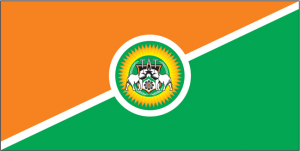Difference between revisions of "Language/Taita/Vocabulary/How-to-Say-Hello-and-Greetings"
| (4 intermediate revisions by 4 users not shown) | |||
| Line 1: | Line 1: | ||
<div class="pg_page_title">Greetings & Common Phrases in Taita Language</div> | <div class="pg_page_title">Greetings & Common Phrases in the Taita Language</div> | ||
[[File:greetings-say-hello-polyglot-club.png|thumb]] | [[File:greetings-say-hello-polyglot-club.png|thumb]] | ||
[[File:Taita-Language-PolyglotClub.png|thumb]] | [[File:Taita-Language-PolyglotClub.png|thumb]] | ||
| Line 12: | Line 12: | ||
Let’s get started! 🤗 | Let’s get started! 🤗 | ||
__TOC__ | __TOC__ | ||
<span link>PS: Finish this lesson and explore this page:</span> [[Language/Taita/Vocabulary/Count-from-1-to-10|Count from 1 to 10]]. | <span link>PS: Finish this lesson and explore this page:</span> [[Language/Taita/Vocabulary/Count-from-1-to-10|Count from 1 to 10]]. | ||
==Greetings== | ==Greetings== | ||
These phrases give a basic introduction to the language, but keep in mind that the Taita language, like many others, has nuances and variations that may not be captured in a simple list. Additionally, Swahili is widely spoken in Kenya and often influences or is integrated with other local languages, including Taita. | These phrases give a basic introduction to the Taita language, but keep in mind that the Taita language, like many others, has nuances and variations that may not be captured in a simple list. Additionally, Swahili is widely spoken in Kenya and often influences or is integrated with other local languages, including Taita. | ||
{| class="wikitable sortable" | {| class="wikitable sortable" | ||
| Line 35: | Line 35: | ||
| | | | ||
|- | |- | ||
| | |Reply to Davuka | ||
|Navuka | |Navuka | ||
| | | | ||
|- | |- | ||
|Hello father | |Hello father | ||
| | |Mana aba/apa | ||
| | | | ||
|- | |- | ||
|Hello mother | |Hello mother | ||
| | |Mana mao | ||
| | | | ||
|- | |- | ||
| Line 52: | Line 52: | ||
|- | |- | ||
|Good morning | |Good morning | ||
| | |Kwalale mana | ||
| | | | ||
|- | |- | ||
| | |Afternoon and evening greeting | ||
|Kwasinda mana | |Kwasinda mana | ||
| | | | ||
|- | |- | ||
| | |Nighttime greeting | ||
|Lala maana | |Lala maana | ||
| | | | ||
|- | |- | ||
| | |How are you? | ||
|Koko mana? | |Koko mana? | ||
| | | | ||
|- | |- | ||
|How was your day | |How was your day? | ||
| | |Kwasinda wada? | ||
| | | | ||
|- | |- | ||
| Line 76: | Line 76: | ||
|- | |- | ||
|Bye | |Bye | ||
| | |Enda mana | ||
| | | | ||
|- | |- | ||
| Line 149: | Line 149: | ||
|a) Goodbye | |a) Goodbye | ||
b) Thank you | b) Thank you | ||
c) Hello | c) Hello | ||
d) How are you? | d) How are you? | ||
|c) Hello | |c) Hello | ||
| Line 156: | Line 156: | ||
|a) Kulale mana | |a) Kulale mana | ||
b) Navuka | b) Navuka | ||
c) Maana | c) Maana | ||
d) Kwawuka mana | d) Kwawuka mana | ||
|b) Navuka | |b) Navuka | ||
|- | |- | ||
|What is the phrase for "sleep well" in Taita? | |What is the phrase for "sleep well" in Taita? | ||
|a) Kulale mana | |a) Kulale mana | ||
b) Maana | b) Maana | ||
c) Koko mana | c) Koko mana | ||
| Line 167: | Line 167: | ||
|a) Kulale mana | |a) Kulale mana | ||
|} | |} | ||
==Sources== | ==Sources== | ||
Latest revision as of 23:08, 10 January 2024
Hi Taita learners! 😃
Taita is a Bantu language spoken in the Taita Hills of Kenya.
Greetings are an important part of any language because they allow you to connect and communicate with others.
If you’re planning a trip to Kenya or are trying to learn Taita, keep reading to discover some of the most important greetings.
Let’s get started! 🤗
PS: Finish this lesson and explore this page: Count from 1 to 10.
Greetings[edit | edit source]
These phrases give a basic introduction to the Taita language, but keep in mind that the Taita language, like many others, has nuances and variations that may not be captured in a simple list. Additionally, Swahili is widely spoken in Kenya and often influences or is integrated with other local languages, including Taita.
| English | Taita | Influenced by Swahili |
|---|---|---|
| general greeting (Hello) | Maana | |
| general greeting (Hi) | Sere | |
| general greeting | Davuka | |
| Reply to Davuka | Navuka | |
| Hello father | Mana aba/apa | |
| Hello mother | Mana mao | |
| Good morning | Kwawuka mana | |
| Good morning | Kwalale mana | |
| Afternoon and evening greeting | Kwasinda mana | |
| Nighttime greeting | Lala maana | |
| How are you? | Koko mana? | |
| How was your day? | Kwasinda wada? | |
| Sleep well | Kulale mana | |
| Bye | Enda mana | |
| Who are you? (sing.) | Oho ni ani? | |
| Who are you? (pl.) | Oho ni ani? | |
| Who is he? | Nani (uo)? | |
| Where are you going? | Kwawaenda hao? | |
| Where are you? | Koko hao? | |
| Where is it? | Cheko hao? | |
| Thank you | Asante | Yes |
| Yes | Ee | Yes |
| No | Hapana | Yes |
| Please | Tafadhali | Yes |
| Goodbye | Enda mana |
Dialogue in Taita[edit | edit source]
| Person A | Person B |
|---|---|
| Maana! (Hello!) | Maana! Koko mana? (Hello! How are you?) |
| Navuka. Kwawuka mana? | Navuka. Kulale mana! (Good, sleep well!) |
Quiz: Understanding Taita[edit | edit source]
| Question | Options | Answer |
|---|---|---|
| What does "Maana" mean? | a) Goodbye
b) Thank you c) Hello d) How are you? |
c) Hello |
| How do you respond to "Koko mana?" | a) Kulale mana
b) Navuka c) Maana d) Kwawuka mana |
b) Navuka |
| What is the phrase for "sleep well" in Taita? | a) Kulale mana
b) Maana c) Koko mana d) Kwawuka mana |
a) Kulale mana |
Sources[edit | edit source]
- https://ke.opera.news/ke/en/business/dde6a8dad40db93807a7a807ebcfc871
- http://users.elite.net/runner/jennifers/
Free Taita Lessons[edit | edit source]
Language Exchange[edit | edit source]
Forum[edit | edit source]
Tools[edit | edit source]
Marketplace[edit | edit source]
Other Lessons[edit | edit source]

